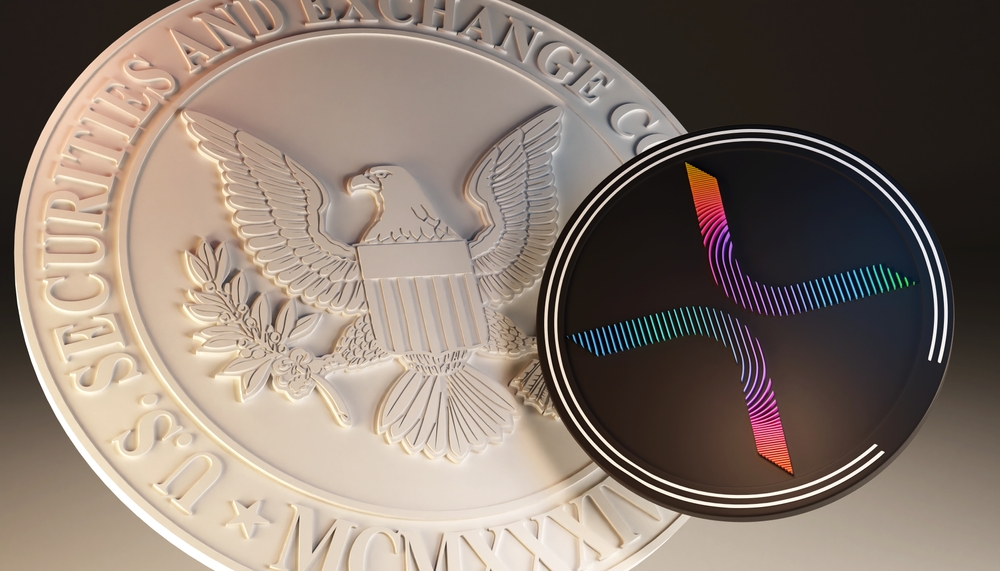Table of Contents
ToggleIntroduction
SIBOS, the annual conference for the global financial industry, has been known for bringing together financial institutions and technology providers to discuss the latest trends and innovations. In recent years, the emergence of cryptocurrencies and blockchain technology has played a significant role at SIBOS events. These digital assets have not only attracted the attention of institutional investors but have also sparked discussions on regulation and the future of the financial industry.
At the SIBOS conference, leading experts and industry professionals share their insights on the potential of cryptocurrencies, as well as their challenges and opportunities. Various aspects of the crypto ecosystem, such as technology advancements, use cases, and the importance of collaboration, are explored in detail. Furthermore, the event becomes a platform for financial institutions to understand and adapt to the evolving landscape, including the growing adoption and regulation of crypto assets.
Institutional Adoption of Crypto
Financial Institutions and Crypto
Several financial institutions have been increasingly interested in incorporating cryptocurrency and blockchain technology into their operations. Notable banks such as HSBC and Natwest have begun exploring the potential of digital assets. As the ecosystem of digital currencies continues to grow, institutional investment in crypto has expanded as well.
Many financial institutions are now considering digital asset custody services to provide secure storage solutions for their clients’ cryptocurrencies. A key factor in the growth of institutional adoption is the increase in regulatory clarity, which allows businesses to operate with confidence in the crypto sector.
Businesses Embracing Blockchain
Blockchain technology has been gaining traction in several industries due to its unique ability to offer secure, transparent, and efficient transactions. Some forward-thinking businesses have adopted blockchain-based solutions, enhancing their day-to-day operations and improving trust with consumers and other businesses.
As businesses continue to embrace blockchain technology, they build on existing institutional support for the growing digital assets market. This adoption not only legitimizes cryptocurrencies but also contributes to their long-term growth and stability.
Enterprise Ecosystem Map
The institutional and enterprise landscape for digital assets is complex and continuously evolving. Institutions that have invested in crypto include central banks, enterprise businesses, start-ups, and financial companies.
Companies like Chainalysis have played a crucial role in providing institutionally-facing solutions that analyze and monitor blockchain activity, ensuring compliance with regulations and mitigating the risk of fraud. Central banks are also exploring the potential of issuing their own digital currencies, known as Central Bank Digital Currencies (CBDCs).
In conclusion, the institutional adoption of crypto and blockchain technology is on the rise, with many entities recognizing the advantages of incorporating digital assets into their operations. This growth signals a positive shift towards a more widespread acceptance and use of cryptocurrencies and blockchain technology across various industries.
Regulation of Crypto Assets
Crypto Regulation and Trust
Regulation of crypto assets aims to provide a balance between fostering innovation and ensuring investor protection. Trust in the crypto ecosystem is vital for mainstream adoption, and regulatory clarity can contribute significantly to building that trust. Establishing a clear regulatory framework can reduce risks related to privacy concerns, transparency, and applied use cases.
For instance, the emergence of stablecoins has caught the attention of regulators worldwide due to their potential to provide stability within the volatile cryptocurrency market. Regulatory approaches like the EU regulatory proposals for asset-referenced tokens offer guidelines on managing risks associated with these assets, thus enhancing trust in the sector.
While establishing a robust regulatory environment, it is essential to maintain a balance between protecting investors and promoting innovation. Continuous consultation with all stakeholders, including developers, policymakers, and the public, can help achieve this balance, ensuring the long-term success and evolution of crypto assets.
Policy Implications for Cryptocurrency
Cryptocurrencies have significant implications for public policy. In response to the rapid growth of these digital assets, regulators have been developing policies to address various aspects, such as financial stability, anti-money laundering (AML), and consumer protection.
One crucial area that policymakers need to consider is privacy. Many cryptocurrencies offer different levels of transactional privacy, which presents challenges for both regulators and users. Ensuring that cryptocurrencies maintain adequate privacy features while also complying with AML regulations will require a nuanced and effective policy approach.
Moreover, cryptocurrencies add another layer of complexity to transparency in financial transactions. Ensuring that information related to transactions is readily available and easily understandable could enhance transparency and help mitigate potential fraudulent activities. The application of blockchain technology can play a critical role in enhancing transparency and security within the cryptocurrency sector.
Another crucial aspect for policymakers to consider is the potential use cases for cryptocurrencies. As applied use cases continue to evolve, it is essential to craft regulatory policies that can adapt to these changes and not hinder innovation. Engaging in regular consultations with developers, users, and other stakeholders can enable policymakers to stay abreast of emerging trends and create a more supportive environment for cryptocurrencies.
In summary, effective regulation of crypto assets is essential to building trust and fostering the mainstream adoption of cryptocurrencies. A balance must be struck between protecting investors and promoting innovation, which can be achieved through ongoing consultation and a careful approach to policymaking. Addressing concerns surrounding privacy, transparency, and applied use cases will help ensure the long-term success and evolution of the crypto market.
Technology in Crypto
Blockchain Innovations
Blockchain technology continues to transform the financial industry with its ability to secure transactions, enforce contracts, and establish trust between parties. At SIBOS, industry leaders often discuss the potential of this technology to reshape various aspects of the financial sector, including tokenized deposits, digital currencies, and securities. One of the key advantages of blockchain technology is its decentralization, which eliminates the need for central authorities, reduces costs, and improves process efficiency.
Moreover, blockchain enables better transparency for supply chain finance systems, playing an innovation promoting role in the industry. Financial institutions are gradually adopting and investing in the blockchain, exploring its benefits to their business models and capabilities.
The Role of Smart Contracts
Smart contracts play a vital role in the world of crypto technology, as they automate the execution of agreements between parties and eliminate the need for intermediaries. These self-executing contracts are programmed to fulfill specific conditions, and automatically trigger actions when the predetermined terms are met.
By utilizing blockchain technology, smart contracts help enhance security, transparency, and reliability, making it easier for financial institutions to conduct transactions and manage contracts. At SIBOS conferences, experts often highlight the game-changing potential of smart contracts in streamlining processes, reducing operational costs, and mitigating risks in various financial operations.
Crypto Ecosystem and Interoperability
As the crypto ecosystem continues to grow, so does the need for efficient, secure, and standardized communication between different blockchain networks. Interoperability is crucial for the development and adoption of cryptocurrencies worldwide, enabling cross-chain transactions and collaboration.
Interoperability allows for seamless data sharing and resource exchange among different blockchain platforms, thus breaking down barriers and fostering innovation within the industry. This concept has been discussed at events like SIBOS, with experts emphasizing its significance in enhancing the scalability, security, and flexibility of blockchain-enabled financial solutions.
In conclusion, technology in crypto, particularly blockchain innovations, smart contracts, and interoperability, has a profound impact on the financial landscape. As the industry adapts and evolves, conferences like SIBOS and others continue to explore and analyze the potential of these advancements in revolutionizing the way we transact, invest, and interact with financial services.
The Future of Crypto
Defi and Emerging Opportunities
Decentralized Finance (DeFi) is rapidly expanding and bringing new opportunities to the financial industry. DeFi platforms offer services like lending, borrowing, and decentralized exchanges, increasing financial access for consumers worldwide. In recent years, we’ve seen a surge in demand for stablecoins, which are cryptocurrency assets pegged to traditional currencies, providing stability and reducing volatility in the crypto market.
One area of opportunity for DeFi lies in the cash management sector, as more institutions are migrating from traditional systems to blockchain-based solutions. These solutions enable institutions to enhance their cash management processes by improving the interoperability of networks and reducing transaction costs. Moreover, focusing on digital assets in 2023 could tap into new markets, like the emerging metaverse.
Non-Crypto Businesses and Crypto
Non-crypto businesses are also embracing the benefits of digital assets and cryptocurrencies, recognizing their potential to enhance various aspects of their businesses. Companies like Zumo, a mobile wallet provider, are leveraging blockchain technology to offer secure and user-friendly solutions that empower consumers to manage and invest in digital assets easily.
The integration of cryptocurrencies in non-crypto companies enhances their payment systems, promoting increased security, more efficient transactions, and streamlined processes. This marks a shift in business strategy, as organizations worldwide work to adopt a big-picture understanding of the industry’s potential.
Crypto Outlook for SIBOS 2023
As SIBOS 2023 approaches, it’s essential to consider the growing impact of crypto assets and emerging technologies on the financial sector. Despite the hype surrounding cryptocurrencies, there is a genuine need for digital solutions in an ever-evolving world.
Central banks across the globe are in various stages of exploring or implementing digital currencies, acknowledging their potential to complement or replace traditional fiat currency. SIBOS 2023 would likely delve deeper into these topics, exploring ways to harness the potential of crypto assets and DeFi in shaping the future of finance.
In summary, the future of crypto will be shaped by the industry’s ability to embrace emerging areas of opportunity, like DeFi, and integrate these advancements into traditional financial systems. As crypto assets continue to gain traction, SIBOS 2023 will likely present a platform for essential conversation, collaboration, and innovation within the financial community.
Crypto Use Cases
Crypto and Payments
The emergence of cryptocurrencies like Bitcoin and Ripple’s XRP has significantly transformed the landscape of cross-border payments. These digital currencies provide alternative solutions for global payment transactions. As a result, they are playing a key role in streamlining business-to-business (B2B) and retail transactions. Utilizing blockchain technology in payments provides increased security, lower costs, and faster processing times compared to traditional money transfer methods.
With blockchain, a trustless and decentralized system is established, reducing reliance on intermediaries and allowing for direct transactions between parties. As the use of cryptocurrencies for payments becomes more prevalent, platforms like Ripple are facilitating smoother and more efficient cross-border transactions.
Trade and Digital Assets
Blockchain technology has also made its presence felt in the world of trade and digital assets. By creating a global digital asset ecosystem, companies and investors can now leverage blockchain in supply chain finance to improve trade finance management, traceability, and ownership transfer.
An essential aspect of this digital asset ecosystem is the development of B2B digital assets infrastructure. This allows for easier management, tracking, and verification of digital assets by providing a unified and secure platform for all parties involved. Overall, this fosters improved transparency, mitigates risk, and enables a more streamlined financial landscape.
Identity Verification in Blockchain
Another important use case of blockchain technology is its application in identity verification. Traditional identity verification methods are often time-consuming and prone to errors, necessitating a more efficient and secure alternative. Blockchain-based identity verification offers a decentralized and tamper-proof solution to this problem.
By using decentralized identity verification, customers and businesses can securely store and share their private credentials without having to rely on centralized authorities. The benefits of blockchain-based identity verification are vast, including increased privacy, lower costs, and faster processing times. Applying this technology to identity verification has various applications, such as onboarding customers, online authentication services, and granting access permissions.
To summarize, the advent of cryptocurrencies and blockchain technology has resulted in numerous use cases, ranging from payments to digital asset management and identity verification. These applications stand to alter traditional financial landscapes and processes significantly to enable a more efficient and secure ecosystem for all parties involved.












